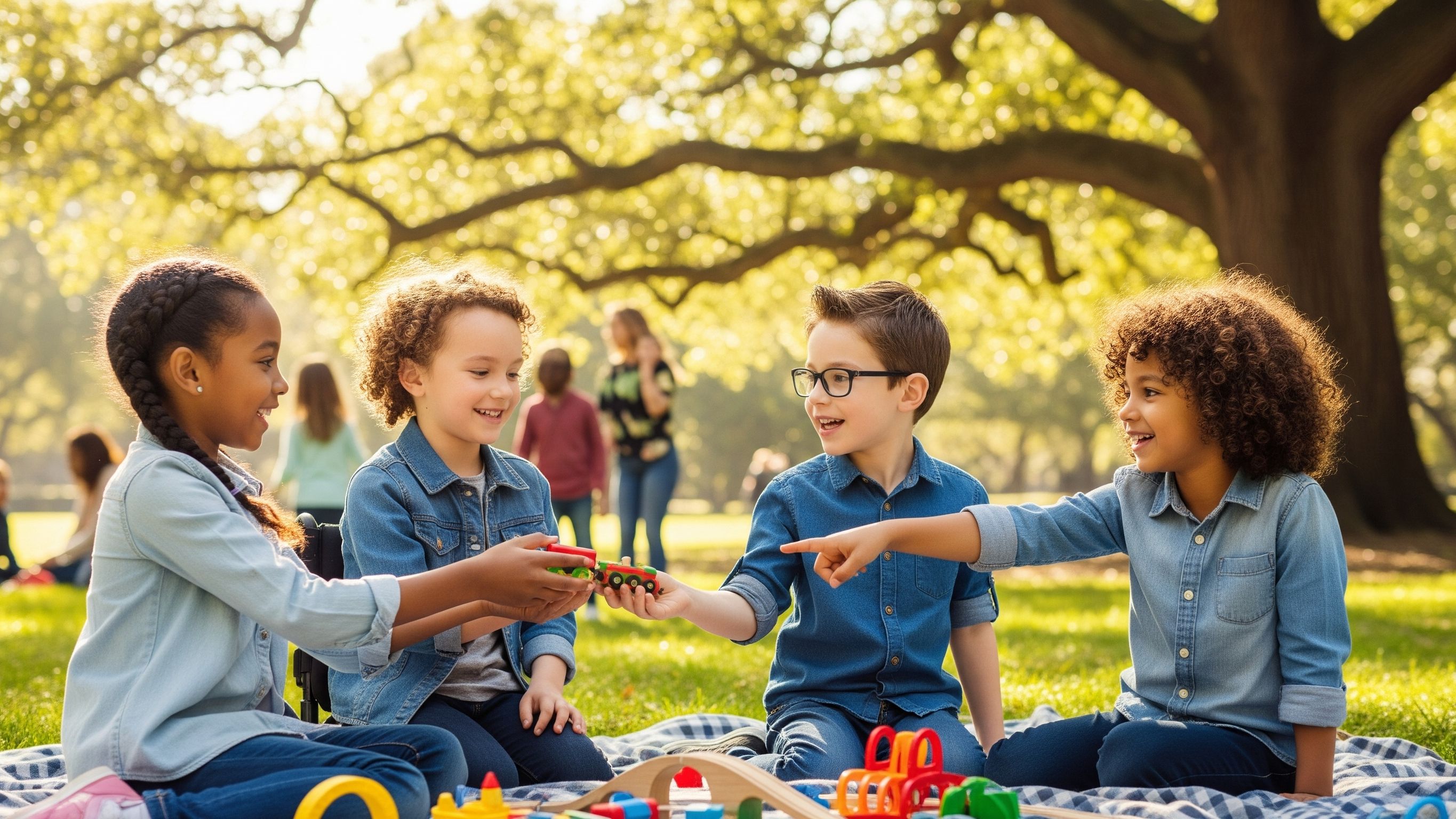Social Skills: Helping Your Child Connect and Make Friends
Aug 25, 2025
As parents, we want our children to have friends and feel connected. For children with autism, social interactions can sometimes be puzzling or overwhelming. It's not that they don't want to connect; they just might need different tools and guidance.
Understanding social differences:
* Children with autism might struggle with "reading" social cues like body language or facial expressions.
* They may prefer solitary play or have very specific interests they want to share.
* Initiating conversations or knowing how to join a group can be challenging.
Simple ways to help at home and out:
* Practice Play: Set up playdates in a structured way. Guide them on how to share, take turns, and respond to others.
* Use Social Stories: Create short, simple stories with pictures to explain social situations (e.g., "Going to a Party," "Sharing Toys").
* Model Good Social Behavior: Show them how you greet people, share, and listen.
* Teach Emotional Vocabulary: Help them identify and name feelings (happy, sad, angry, surprised) in themselves and others.
* Find Shared Interests: Look for groups or clubs based on their special interests. This can be a natural way to connect with peers.
* Start Small: Don't expect perfection. Celebrate any positive social interaction, no matter how brief.
Remember, social skills are learned, just like any other skill. With patience, consistent practice, and understanding, your child can build meaningful connections and friendships.
Click below to watch the free training.
Stay connected with news and updates!
Join our mailing list to receive the latest news and updates from our team.
Don't worry, your information will not be shared.
We hate SPAM. We will never sell your information, for any reason.

